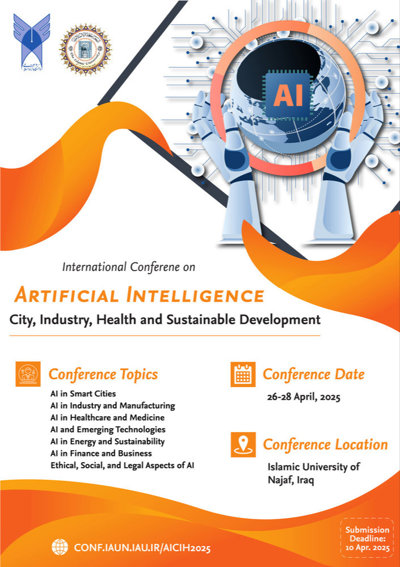0% Complete

نویسندگان :
کلمات کلیدی :
چکیده :
لیست مقالات بایگانی شده
احسان شکوهمند - مصطفی درویشی - مهرداد طهماسبی
Hasti Mokhtari Karchegani - Homa Movahednejad - Mahdi Sharifi
Mohammad Reza Yousefi - Reza Rahimi
Atefeh Ahmadi Jazi - Nasim Noorafza
سید امید رادی - مهرداد فارسی مدان
ابراهیم گوگونانی - داود طغرایی - مجید ریاحی سامانی - مجتبی مجتبی رحیمی - بابک مهماندوست
علی سالم دزفولی - محمود جورابیان - ناصر حمیدی - مجتبی آزادی اردکانی
Seid Mohammad Reza Mirahmadi - Naser Khani
Mina Pourmbarak Mahanaie - Fatemeh Ansari
Soheil Ebrahimian - Hossein Shahinzadeh - Hamed Nafisi - Mahtab Bagheri - Majid Moazzami - Zohreh Azani


